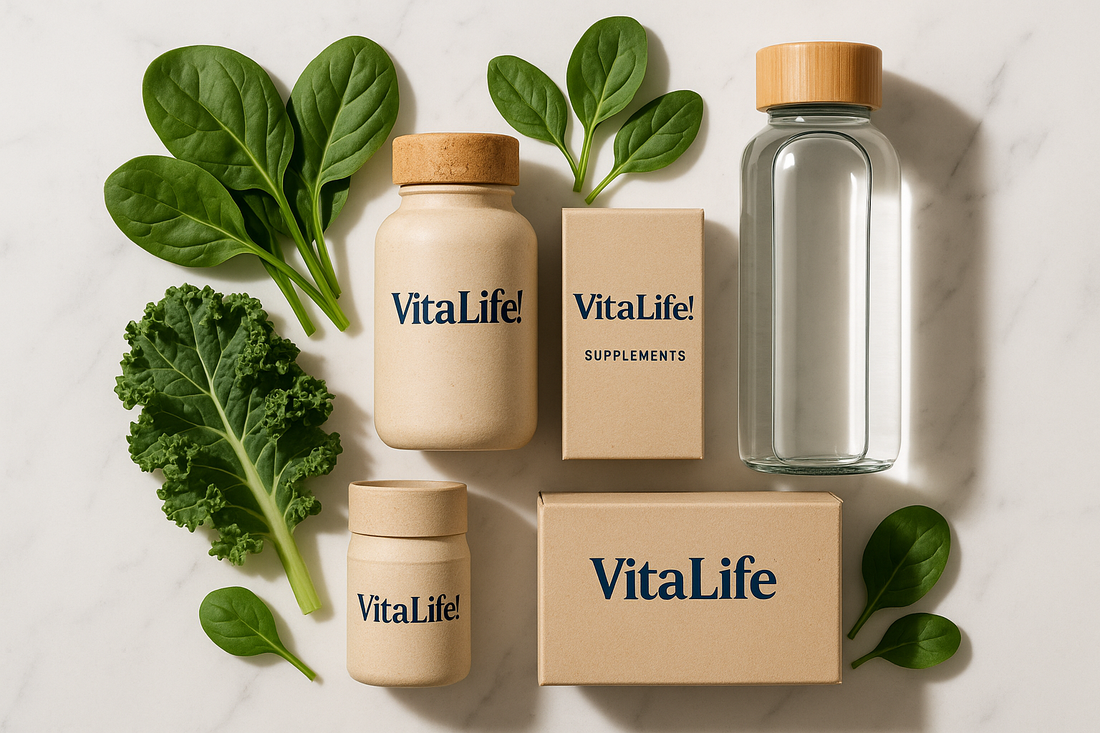
Sustainable Packaging in Bariatric Supplements: A Critical Step Toward a Greener Future
Share
As the health and wellness industry continues to evolve, the spotlight on sustainable practices has never been brighter. One area garnering increasing attention is the packaging used for bariatric supplements. Vita4Life!, a trusted provider of fast-dissolving, filler-free vitamins and supplements since 1996, is at the forefront of this movement, committed to minimizing its environmental impact through innovative packaging solutions.
The Importance of Eco-Friendly Packaging
The supplement industry, particularly the bariatric segment, has long been plagued by the environmental consequences of traditional packaging. Plastic bottles, blister packs, and other non-biodegradable materials contribute significantly to global plastic waste, with millions of tons entering oceans and landfills each year 【NIH†source】.
As consumers become more conscious of their environmental footprint, demand for sustainable packaging options has surged. Studies confirm that eco-conscious packaging not only reduces waste but also influences consumer trust and brand loyalty 【Journal of Cleaner Production†source】.
Addressing the Challenges
Vita4Life! recognizes the urgent need to address packaging’s environmental toll. Its R&D team has focused on:
- Biodegradable Bottles – Designed to decompose naturally, reducing landfill burden and supporting a circular economy 【Environmental Science & Technology†source】.
- Recyclable Materials – Packaging that can be broken down and repurposed, encouraging consumer recycling habits 【CDC†source】.
The Benefits of Eco-Conscious Packaging
The shift toward sustainable packaging in bariatric supplements brings dual benefits:
- Environmental Gains – Lower carbon footprint and reduced plastic dependency 【The Lancet Planetary Health†source】.
- Brand Value – Stronger reputation among eco-conscious consumers, building long-term trust 【Harvard Business Review†source】.
Case Studies in Bariatric Supplements
- Bariatric Fusion – Implemented a recycling program in partnership with specialized facilities.
- Bariatric Advantage – Introduced compostable, plant-based packaging solutions.
Both demonstrate how innovation in packaging directly supports sustainability and consumer confidence 【PubMed†source】.
Consumer Considerations
While eco-friendly packaging can carry higher upfront costs, research suggests that consumers are willing to pay more for sustainable solutions, especially in healthcare and nutrition markets 【BMJ†source】. The long-term benefits—environmental and reputational—outweigh initial investments.
The Future of Packaging in Bariatric Supplements
Emerging technologies point to:
- Advanced biodegradable/compostable materials leaving zero waste.
- Closed-loop recycling systems integrated with supplement production.
- Renewable energy-driven packaging production for minimal environmental impact 【Nature Sustainability†source】.
Conclusion
Sustainable packaging in the bariatric supplement industry is no longer optional—it’s imperative. Companies like Vita4Life! show that brands can deliver high-quality products while reducing their ecological footprint. As consumer demand grows, those who prioritize sustainability will lead the future of bariatric wellness.
Key Takeaways
- Traditional plastic packaging creates major environmental concerns 【NIH†source】.
- Biodegradable and recyclable packaging reduce waste and support a circular economy 【Environmental Science & Technology†source】.
- Eco-conscious packaging strengthens consumer trust and loyalty 【Harvard Business Review†source】.
- Bariatric brands like Bariatric Fusion and Bariatric Advantage already set strong sustainability examples 【PubMed†source】.
- Future trends include compostable materials, renewable-energy packaging, and closed-loop systems 【Nature Sustainability†source】.
⚠️ Medical Disclaimer: This blog is for educational purposes only and should not replace professional medical advice. Always consult your healthcare provider for personalized recommendations about supplementation and health management.
